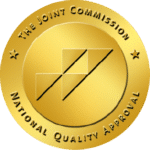
(A an excited neuron)
Depression is a mental health disorder that affects millions of people worldwide. Despite advances in pharmacological interventions and psychological therapies, a significant number of individuals remain unresponsive to these traditional treatments. However, a groundbreaking technique, Transcranial Magnetic Stimulation (TMS), promises a new dawn in the battle against depression.
Understanding Depression
Depression is a complex mental health disorder characterized by persistent feelings of sadness, loss of interest or pleasure in activities, difficulty concentrating, and sometimes physical symptoms. It’s a debilitating condition that significantly impairs a person’s quality of life.
Depression has traditionally been treated with a combination of psychotherapy and medication. While these treatments can be effective, about one-third of individuals with depression do not respond well to them, a condition known as treatment-resistant depression.
Enter Transcranial Magnetic Stimulation (TMS).
What is TMS?
TMS is a non-invasive procedure that utilizes magnetic fields to stimulate nerve cells in the brain. In a typical session, an electromagnetic coil is placed against the scalp near the forehead. The electromagnet delivers a painless magnetic pulse that stimulates nerve cells in the region of the brain involved in mood regulation and depression — the dorsolateral prefrontal cortex.
TMS therapy can be used when other treatments such as medications and psychotherapy aren’t effective. It’s an FDA-approved treatment method and has shown promising results in numerous clinical trials.
How TMS Works for Depression
The premise behind TMS treatment is relatively straightforward. The magnetic pulses delivered by the TMS machine stimulate the neurons in the prefrontal cortex. This area of the brain is often less active in people with depression. By stimulating these neurons, TMS aims to restore normal activity and thus alleviate depressive symptoms.
Although the exact mechanisms behind how TMS works are not fully understood, research indicates that TMS produces changes in neural networks and neurotransmitter levels, which can improve mood and alleviate depressive symptoms.
The Efficacy of TMS for Depression
Numerous studies have shown the effectiveness of TMS in treating depression, especially treatment-resistant depression. A 2010 study found that about 50-60% of individuals with treatment-resistant depression who had TMS responded to the treatment, with around one-third experiencing full remission.
TMS can offer hope to those who have found little relief from traditional treatments. It’s a valuable treatment option that, alongside existing therapies, can contribute significantly to comprehensive mental health care.
The Safety and Convenience of TMS
TMS has an excellent safety profile. It’s non-invasive, doesn’t require anesthesia, and is performed in outpatient settings. The most common side effects are typically mild and may include headaches or scalp discomfort at the treatment site. Unlike some other treatments for depression, TMS doesn’t cause memory loss or other cognitive impairments.
In terms of convenience, a typical TMS session lasts 30 to 60 minutes, and individuals can resume normal activities immediately after a session.
Conclusion
Transcranial Magnetic Stimulation is an exciting advancement in the treatment of depression. It provides hope for those who haven’t had success with conventional treatments, and its efficacy and safety profile make it a compelling option for many patients. Although more research is needed to fully understand how TMS works, the results so far indicate that it’s a powerful tool in our mental health arsenal. As we continue to deepen our understanding and refine the procedure, TMS will undoubtedly play an integral role in our fight against depression.
Clear Mind Treatment is specialized in helping folks deal with depression, anxiety, PTSD, and Bipolar. We utilize the best and latest techniques, medicine, and procedures to help people break past their current mood disorder.
Located in L.A. and Scottsdale, AZ and online all over.
The Joint Commission Accredited
All PPO Insurance Accepted including and not limited to Anthem, BCBS (Blue Cross/Shield), Aetna, Cigna, United Health
Give us a call 310-571-5957 or email us at info@clearmindtreatment.com and check us out at ClearMindTreatment.com





